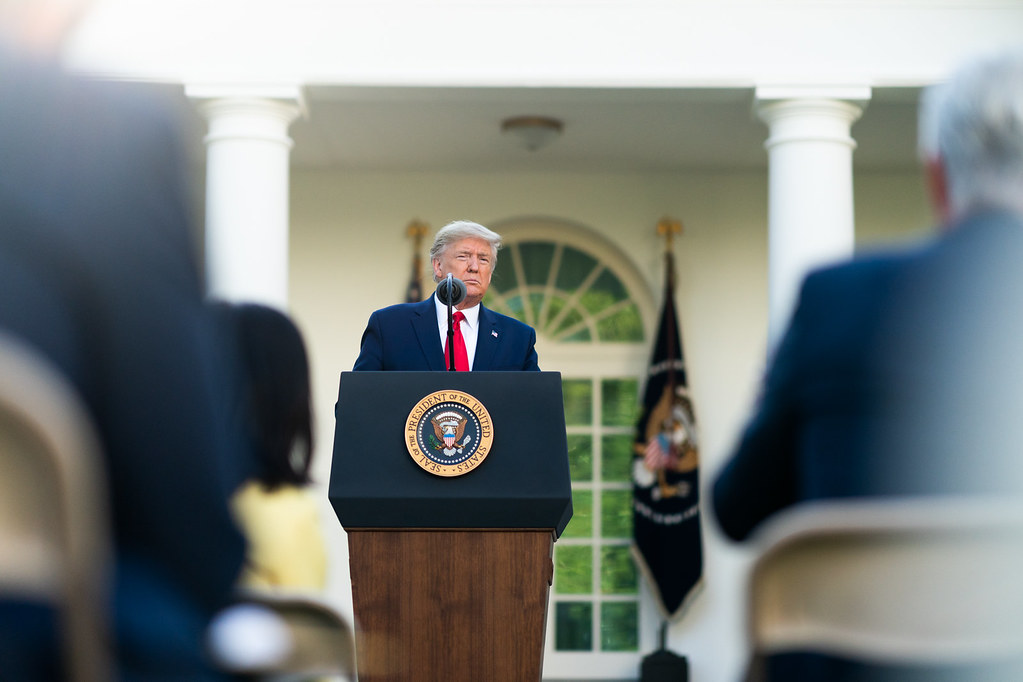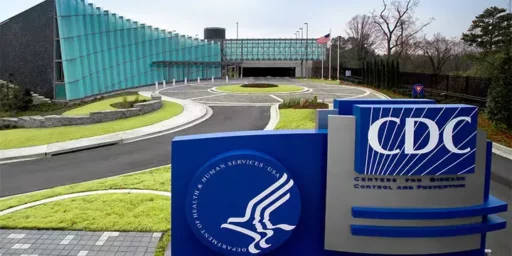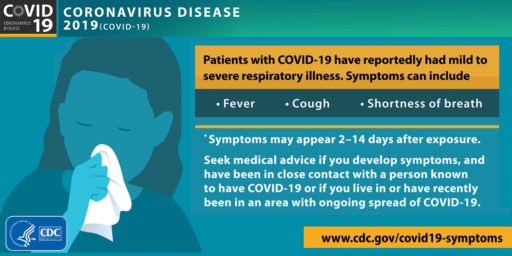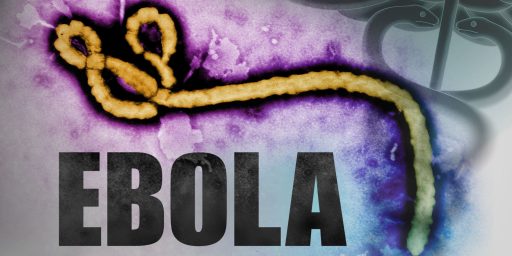White House Warned of Pandemic in September?
President Trump has made plenty of mistakes handling this crisis. Let's not invent dubious ones.

I saw the following in my Twitter feed this morning:
That’s a devastating charge and one that I was entirely predisposed to believe, given how poorly President Trump has managed this crisis. Seeking more information, I clicked through to the story by NYT reporter Jim Tankersly titled “White House Economists Warned in 2019 a Pandemic Could Devastate America” with the subhead “A study published last fall went unheeded. One of its authors now says economic shutdowns to fight the coronavirus could last up to eight months.”
White House economists published a study last September that warned a pandemic disease could kill a half million Americans and devastate the economy.
It went unheeded inside the administration.
In late February and early March, as the coronavirus pandemic began to spread from China to the rest of the world, President Trump’s top economic advisers played down the threat the virus posed to the U.S. economy and public health.
“I don’t think corona is as big a threat as people make it out to be,” the acting chairman of the Council of Economic Advisers, Tomas Philipson, told reporters during a Feb. 18 briefing, on the same day that more than a dozen American cruise ship passengers who had contracted the virus were evacuated home. Public health threats did not typically hurt the economy, Mr. Philipson said. He suggested the virus would not be nearly as bad as a normal flu season.
The 2019 study warned otherwise — specifically urging Americans not to conflate the risks of a typical flu and a pandemic. The existence of that warning undermines administration officials’ contentions in recent weeks that no one could have seen the virus damaging the economy as it has. The study was requested by the National Security Council, according to two people familiar with the matter.
While my natural inclination, given my disdain for this President’s handling of the crisis, was to believe it, I nonetheless clicked through to the report in question. I was puzzled by the title: “Mitigating the Impact of Pandemic Influenza through Vaccine Innovation.” That’s a rather tame framing of a report warning that half a million Americans could die in a pandemic.
So, I read the Executive Summary to find the unheeded warning. I didn’t find it.
The opening paragraph frames the report nicely:
This report estimates the potentially large health and economic losses in the United States associated with influenza pandemics and discusses why the most commonly used vaccine production technologies are unlikely to mitigate these losses. We estimate the value of new vaccine technologies that would make vaccines available more quickly and likely improve their effectiveness in moderating the risks of pandemics. We discuss why private market incentives may be insufficient to develop new vaccine technologies or promote the uptake of existing, faster but more expensive technologies, despite their large expected value to society. And we argue that increased utilization of, and investment in, these new technologies—along with public-private partnerships, to spur innovation—may be valuable to decrease the impact of both pandemic and seasonal influenza.
The piece that most clearly matches Tankersly’s charge is the next paragraph:
Every year, millions of Americans suffer from seasonal influenza, commonly known as “the flu,” which is caused by influenza viruses.[1] A new vaccine is formulated annually to decrease infections resulting from the small genetic changes that continually occur in the most prevalent viruses and make them less recognizable to the human immune system. There is, however, a 4 percent annual probability of pandemic influenza resulting from large and unpredictable genetic changes leading to an easily transmissible influenza virus for which much of the population would lack the residual immunity that results from prior virus exposures and vaccinations. The Council of Economic Advisors (CEA) finds that in a pandemic year, depending on the transmission efficiency and virulence of the particular pandemic virus, the economic damage would range from $413 billion to $3.79 trillion. Fatalities in the most serious scenario would exceed half a million people in the United States. Millions more would be sick, with between approximately 670,000 to 4.3 million requiring hospitalization. In a severe pandemic, healthy people might avoid work and normal social interactions in an attempt to avert illness by limiting contact with sick persons. By incapacitating a large fraction of the population, including individuals who work in critical infrastructure and defense sectors, pandemic influenza could threaten U.S. national security. [emphasis mine]
In the context of a report calling for greater public investment in flu vaccine development, I saw the dire warning of consequences as a call to action.
So I tweeted this:
I immediately received pushback via private message that the report should have been read as a warning against treating a pandemic as an ordinary case of seasonal flu. And, in hindsight, that’s absolutely a fair point.
But here’s the thing: if I had read that report in September, I might very well have been persuaded that we needed to do more on flu vaccination. I might even have come away understanding that an out-of-control flu is different from the kind we deal with most years. But I’m almost positive that I would not have, upon confrontation with a novel coronavirus spreading through a Chinese province, remembered that report from three months ago and thought, “Aha! A pandemic is different from seasonal flu.”
But, of course, President Trump didn’t have to. He has access to the world’s best epidemiologists and other public health experts. They were telling him this wasn’t the seasonal flu and shouldn’t be treated in the same way from the get-go. We should absolutely excoriate him for not heeding those warnings. But we should cut him a break for not taking a tangential point used to underscore a larger one in some report from back in September and coming up with novel conclusions not intended by its authors.
UPDATE: Greg Sargent responds as part of a larger take on the report:
Now, in one sense, it would be unfair to hold Trump responsible for failing to heed this report. As James Joyner points out, the report doesn’t say: A pandemic is coming! A pandemic is coming! Its focus is on the damage pandemics do, and on the need to improve readiness for them.
But in a different and important sense, the report does underscore the folly of early comparisons between coronavirus and seasonal flu. It’s the differences between pandemics and the seasonal flu that render the former such a threat. To conflate them is to actively downgrade that threat.
Indeed, this is exactly why public health experts forcefully challenged Trump’s early comparisons of the two. As Charles Ornstein reported back in mid-March, experts were warning that the comparisons were themselves dangerous, because they risked creating the impression that our health system was more prepared for the new coronavirus than it actually was.
As we now are learning, our health system is not remotely prepared for it. And Trump’s regular downplaying of the threat over weeks and weeks is a key culprit. It helped fuel a massive failure to ramp up testing, allowing the coronavirus to rampage, and a failure to deploy federal power to secure needed lifesaving equipment in time for cases to swamp hospitals.
We’re fully in agreement. My only point here is that the report gives us essentially no new ammunition is this argument.






I agree. Trump is just as guilty, no more, as the presidents who preceded him for not being willing to invest a lot of money to prepare for something that might not happen for another 30 years. We did lose a month or a bit more while he was in denial and concentrating on his ratings and the stock market. I think we could have, should have, had testing and more PPE by now if he had. Ventilator production could havre started. So I would agree it has been his recent management which has been poor, ie up until the last few weeks. Now that he is actually calling for a national lockdown and is taking this seriously he is doing better.
(Still undercuts his message a lot and it would sure be nice if he could talk about something other than himself. Maybe we could have a temporary stoppage on the obligatory 2 minutes of sucking up every speaker at his conferences are obliged to engage in at the start? Would make things go faster.)
Steve
These post outbreak, they were warned stories, all should be taken with a grain of salt or at minimum a careful read as @james has done. If you aren’t going to take the time to research the background that treat the story as a data point and not some dramatic insight.
Not of that excuses the fact that Tiny effed up bigly.
I put this story in the same category as getting rid of – or deemphasizing the pandemic preparedness group at the NSC. It is a sign of bad general planning and shortsighted strategy, but not a specific failure to deal with this threat. We did have that specific failure – this is just not evidence of it.
I agree that you cannot look at this and say, ah-ha, if only this single report had been taken seriously. But it’s part of a greater a pattern of an un-serious, and incompetent President fiddling while the kindling was being lit.
Along the same lines; Bill Gates met with Trump in 2018 and discussed the dangers of a pandemic with him. Trump was more interested in STD’s…for obvious reasons.
https://www.statnews.com/2020/03/10/bill-gates-president-trump-pandemic-preparedness-investment/
https://twitter.com/i/events/997570540343672832?lang=en
Then there is the disbanding of the Pandemic Office.
Then there is ignoring the Pandemic Playbook left behind by the Obama Administration.
https://www.politico.com/news/2020/03/25/trump-coronavirus-national-security-council-149285
Then there is…well the list is long.
From The Guardian; “A fiasco of epic proportions”
https://www.theguardian.com/us-news/2020/mar/28/trump-coronavirus-politics-us-health-disaster
OK, so in all fairness this report was not something that would be expected to trigger action on the coronavirus. So NYT published a story unfair to a Republican. Now that is news.
I think this story fits into a broader fact: we have known of the possibility of this kind of issue for some time (I read a 2008 report that described the basics of a pandemic like we are experiencing pretty closely). That is a general indictment of lack of willingness to spend on preparedness.
So while I do not blame the Trump admin for not having special foresight on Covid-19, those warnings should have been sufficient context to cause them to take the early warnings signs more seriously when we started to see them from China.
We clearly lost 6 weeks at a minimum due to this.
There are any number of catastrophic events that have a low chance of taking place, like an asteroid impact, a tsunami, a super volcano, or a pandemic, among others.
Of these, we’ve seen over the last 40 years two serious tsunamis, and a number of epidemics, many of which were not contained in a single geographic area.
Just the H1N1 “swine flu” outbreak of 2009 should have been enough to put serious measures in place the world over. A combination of timely measures and a relatively low infection rate, kept this from becoming a devastating pandemic. even so, look at the death toll.
Something worse, more serious, was just a matter of time.
and here’s something that doesn’t get enough discussion: with wildlife habitats shrinking, as animals come into contact with more people, chances of some other zoonotic diseases going viral, rise every year.
@Daryl and his brother Darryl: @Steven L. Taylor: Yes, we’re fully in agreement on that. But, of course, we knew that independent of this particular report. It’s part of a pattern but, absent the pattern, I wouldn’t have held this against Barack Obama, either. (And, of course, he wouldn’t have committed the pattern.)
Glad to see your commentary discussed in WaPo’s coverage of this NYT piece, but WaPo’s take is pretty predictable.
https://www.washingtonpost.com/opinions/2020/04/01/white-house-report-blows-up-trumps-latest-coronavirus-defense
Obviously what is called for is more international cooperation, something closer to a world government. We have the same problem in the world with independent nation states that we have in the US with states. It is absurd and obviously ineffective to approach pandemics with responses crafted by 100 different nations and 50 states, most governed either by tinpot caudillos (Venezuela, Hungary, the US), the utterly helpless (Somalia, Bangladesh, the US) or imbeciles, (Florida, Mississippi, the US). Obviously a world problem is best tackled by a world organization, just as a national problem should be taken on by the national government.
The same is true, to different degrees, when it comes to terrorism or climate change. In fact a great many of the serious problems we face are world problems against which we cannot entirely insulate ourselves. But instead of doing the rational thing and recognizing that we just have this one, tiny planet, the Deep Thinkers of the world, (ISIS, the Chinese Communist Party, the Republican Party) are doing their level best to destroy what international law, communication and co-operation there is.
Some day alien archeologists will study Earth and maybe erect a little plaque: Homo Sapiens, Died of Stoopid.
@James Joyner: @Steven L. Taylor:
I agree with James that this reporting is unhelpful and I’d say Steven’s understanding of response is much more on point than the question of preparedness. Decisions are made every day (in industry and in life) on whether or not to invest heavily for a circumstance that is likely inevitable, but for which the timing is unclear. Many books have been written and consultancies have been built on the calculations of acceptable risk versus cost.
But, in any instance where the risks are accepted to avoid the cost, the MOST important mitigation of the risk is a response plan to be activated at the first indication that the bad outcome is approaching. In the case of COVID-19, if the build-up of treatment facilities, the procurement & strategic distribution of vital medical supplies, and the public awareness campaigns had been put into motion when it was clear to the experts what was coming, then we’d be having a completely different conversation right now. The last three weeks have shown that the US can ramp up to a massive scale of response very quickly when we have to. We just started too late. And that is on Trump and his enablers.
Trumpism is all about the grift. Trump himself and all his backers just gaslight (regardless of evidence) until the gaslighting can no longer be sustained faced with facts on the ground. Then, the Trumpists shift to a different story to gaslight. Over and over…
The country could have managed the risk of a pandemic without extensive stockpiling and capacity build-up with rapid response. Our failure to manage this pandemic is all about leaders emboldened to lie because there are never any consequences to mendacity.
My take on this is slightly different. I see this as a necessary part of the record that adds evidence against the excuses of the current administration. By itself, it is anecdote, but taken with all the other evidence, a clear pattern emerges. So the headline and tone are hyperbole, I don’t care, as long as in years to come, when some student researches this, lots of stories like this pop up to show they were warned, they did know, they did nothing until it was too late.
If we were talking about the CEO of a public company who had a pattern of ignoring, spinning, or downplaying risks, and then a significant risk (cyberattack, money laundering, loss of reputation, IP theft, etc.) materialized, that CEO would likely be fired (or should be, according to corporate governance practices). Risk management is part of the fabric of business around the world. It’s one of the few times that even CEOs with a powerful grip on their companies, such as WeWork founder Adam Neuman, can get the boot.
There’s a whole other discussion to be had about the weak governance of US corporations, leading to situations where risk-indifferent CEOs don’t lose their jobs when they should. However, there is still reason to ask whether someone who had run a private, family-managed company really has transferrable risk management skills. The statement, “He’ll run the government the way he runs his business,” might then take on a different meaning, at least from a risk perspective.
@Kingdaddy:
The Don is clearly frustrated that he can’t just declare bankruptcy and move on. He has no experience with working through ugly situations.
@DrDaveT:
As Jack Shafer pointed out in Politico today, Trump has a knack for shackling other people to his failures so that he walks free and clear while they end up paying for those failures.
I wonder, had all these warnings about pandemics, and massive casualties, and overflowing hospitals been couched in terms of the damage they’d do to the stock market, the economy, and Trump’s image, and been delivered daily on Fox News, would Trump have taken them seriously?
Organizations are always predicting all kinds of catastrophes, so this dire warning is in by itself really meaningless. For example, we all knew Al-Qaeda was up to something- the real issue there was failing to connect the dots like when Saudis wanted to learn how to fly but not land a plane (come on- this got to the FBI and nothing)- sadly Coronavirus is more simple – very deadly virus floating in January and then nothing for two months (come on).
@Raoul:
Nothing? Seriously? What planet was that?
@Raoul: “We all knew Al-Qaida was up to something…” But let it not be forgotten that the previous Republican administration to this one, thought the main problem was Saddam Hussein.
Let us remember this in November. And EVERY November.